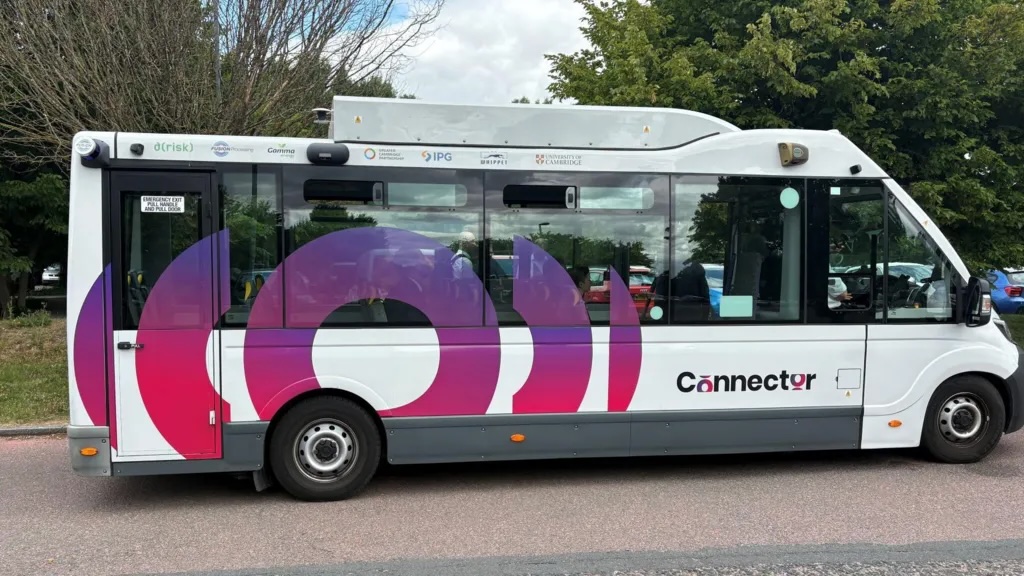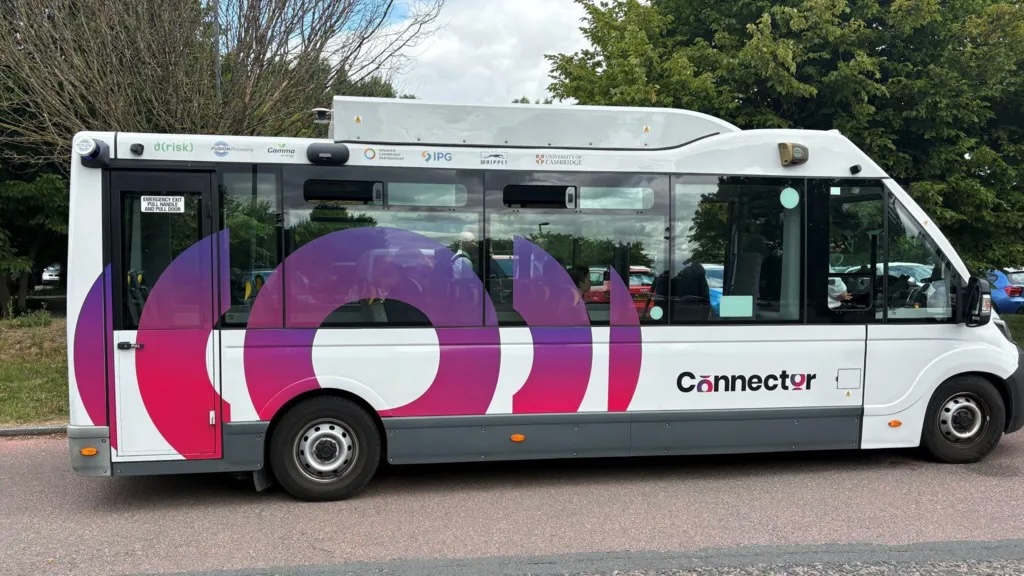This is the monthly edition of the Transport Workers Union’s Transportation Technology Newsletter. We aim to inform and educate our members, the labor movement, the public and policymakers about developments in transportation technology – and what the TWU is doing to ensure that new technology doesn’t undermine safety or harm the livelihoods of hard-working blue-collar workers. For suggestions and questions, please email ewytkind@gmail.com or adaugherty@twu.org.
ITEM OF THE MONTH
COMING TO THE NORTHEAST: Waymo started operations with human drivers in New York City and Philadelphia, the first phase of testing as it envisions expanding robotaxi operations to two of the densest cities in the country. The Transport Workers Union represents transit workers at NYC’s Metropolitan Transportation Authority and Philadelphia’s Southeastern Pennsylvania Transportation Authority.
For now, human drivers will navigate streets to collect data. And in New York, existing state laws prevent autonomous robotaxi operations – presenting a major hurdle for Big Tech players who want to bring robotaxis to NYC streets. Initially, Waymo will operate vehicles in Manhattan, parts of Brooklyn, and across the Hudson in Jersey City and Hoboken. NYCDOT will need to grant Waymo permission to drive vehicles autonomously with a human backup driver behind the wheel. The company will also need approval from Pennsylvania’s DOT to conduct automated tests with a driver behind the wheel.
“Waymo and other Big Tech companies should not be permitted to launch driverless vehicles with their unproven tech in some of the busiest cities in the world,” said TWU International President John Samuelsen. “We will fight any effort to put driverless vehicles on NYC streets without sufficient protections for the traveling public and contract language that protects jobs from Big Tech oligarchs who see autonomous transportation as a way to further line their pockets.” TWU International Administrative Vice President Curtis Tate wrote in an op-ed last year that autonomous operations in NYC will turn New Yorkers into crash test dummies.
MIAMI ON HOLD: Rainy conditions also present another obstacle for autonomous operations, as Waymo recently announced it will not begin operations in Miami until 2026 and noted in a blog post that South Florida’s frequent heavy rain is “challenging.”
WHAT ELSE IS COOKING
UK TRIES AUTONOMOUS BUS (AGAIN): Some city officials in Cambridge, England think buses can drive themselves so they’ve launched a 15-seater driverless bus service through next spring, the BBC reports. Referring to certain public transit services that aren’t “commercially viable,” the head of innovation for the project declared, “We think there is a use case for buses without drivers in those areas.” He also bragged that cutting labor costs is a significant factor for expanding the use of autonomous buses, arguing “the cost of the driver is significant.”

A new autonomous bus in England (source, BBC).
The project developers believe that bus automation would change jobs from traditional operators to “more of a customer service” function and bragged that it will be safer than services operated by humans because an automated bus “doesn’t get bored, it can react very quickly, it doesn’t get distracted, so the aim is ultimately that this will be safer than human drivers.”
“Yet again another city is being fooled into believing that public transit can be safer without human drivers on-board the bus,” said TWU Administrative Vice President Curtis Tate. “We know from real-life experience that transit operators do much more than operate the bus – they are first-responders dealing with safety and health emergencies and sudden road and weather hazards without warning. A robotic bus cannot respond to those events and passengers need much more than fancy sensors and video images.”
A reminder: late last year the world’s first autonomous bus on public roads was axed in Scotland.
PREEMPTION FAILS: A provision within President Donald Trump’s “One Big Beautiful Bill” that would have given carte blanche to AI companies to skirt state and local laws relating to AI went down in flames in the U.S. Senate after the TWU and other unions raised objections. Reuters reports that Senate Commerce Committee Ranking Member Maria Cantwell (D-Wash.) noted that the proposed preemption would have negative consequences for transportation safety. Cantwell, the top Democrat on the Commerce Committee, praised the vote to kill the preemption language, saying “we can’t just run over good state consumer protection laws. States can fight robocalls, deepfakes and provide safe autonomous vehicle laws.”
NOT A LAUGHING MATTER: Tesla is under investigation from NHTSA for its botched robotaxi rollout in Austin, Reuters reports, after a slew of online videos showed driverless Teslas behaving erratically when autonomous operations began in June. NHTSA is particularly interested in the safety of Tesla’s autonomous tech in poor weather conditions. Despite these serious concerns, Tesla CEO Elon Musk unveiled a phallic-shaped map depicting robotaxi service areas in Austin, and made repeated jokes about it on social media, the New York Post reports. The New York Times also reports that Tesla’s global vehicle sales fell sharply during the first quarter of 2025, as it focuses on autonomous transportation instead of attracting car buyers to its electric vehicles.
ZOOX FACTORY OPENS: Amazon-backed autonomous vehicle company Zoox announced in late June it opened the first production line purpose-built for autonomous vehicles, touting that its facility in the Bay Area will eventually be able to build 10,000 boxy robotaxis per year. Zoox recently began autonomous operations in Las Vegas and plans to expand in San Francisco. Zoox is under investigation from NHTSA for its toaster-shaped vehicles that do not include traditional steering controls like wheels and pedals. The company argues that its vehicles are self-certified to meet current safety standards.
VIOLATION: Michael Brooks, executive director for the Center for Auto Safety, told the Verge last year that Zoox’s claims are bogus. “Our belief is that a deployment of these vehicles on public roads is a violation of the Safety Act. Zoox isn’t so much exploiting a gray area as they are putting a foot over the red line and challenging NHTSA to call their bluff.”
WHAT WE’RE READING:
Uber Eats, Serve Robotics Roll Into Atlanta. Smart Cities Dive.
China’s Baidu to bring its driverless cars to Uber globally. CNBC.
Austin, TX Testing 40-Foot Driverless Buses in Depots. Smart Cities Dive

